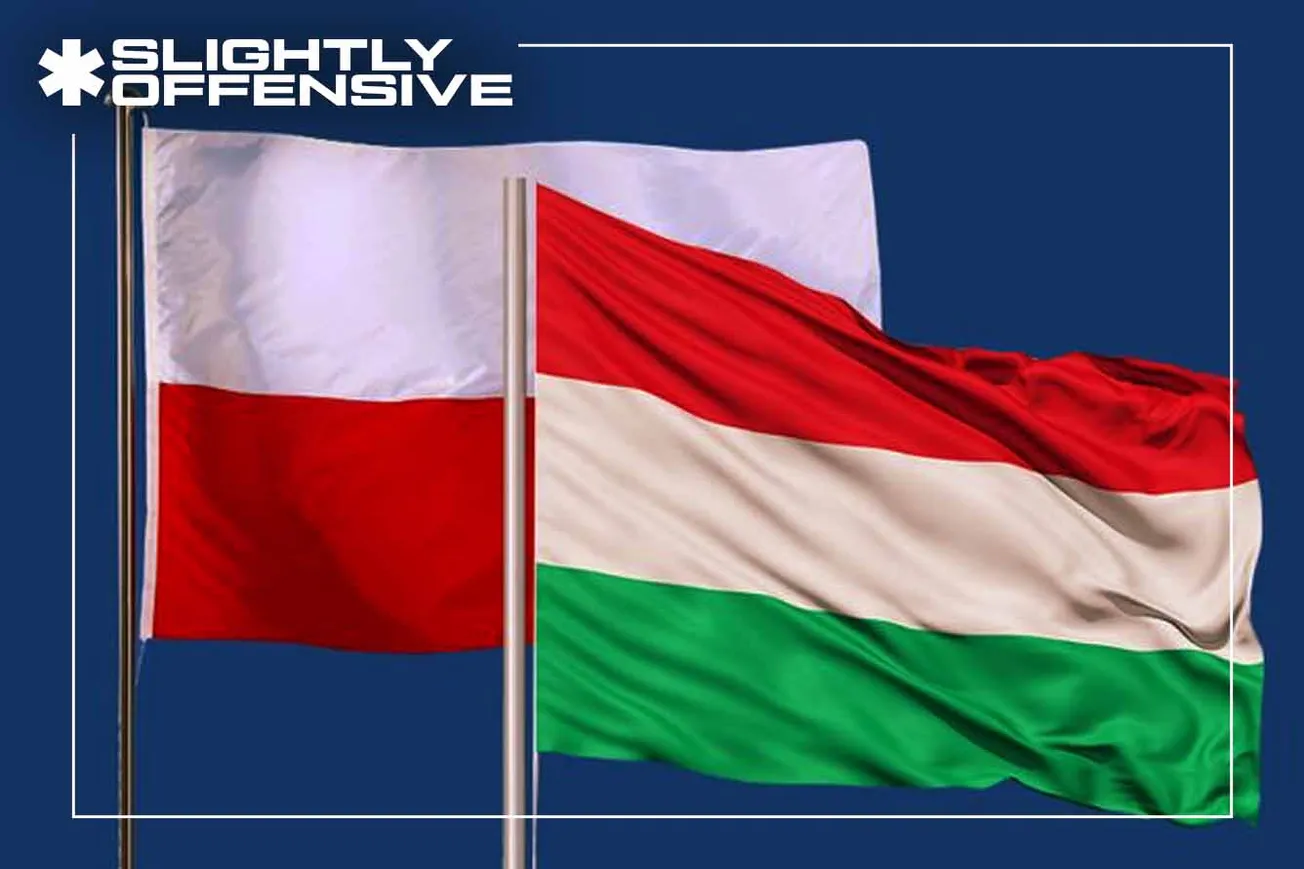Europe is changing. While some nations embrace progressive policies, others hold firmly to traditional values, national identity, and cultural heritage. Across the continent, conservative parties and leaders are gaining traction. They defend nationalism, family values, and skepticism toward globalist policies.
So, to see which are the most conservative European countries, let’s take a look at the nations where traditional values, national pride, and cultural identity shape political life.
What is the most conservative European country?
The most conservative European country is Poland. It’s also the most conservative country in the West, according to our observations.
But we can also refer to the second (and it’s close) most conservative country in Europe: Hungary. Under Prime Minister Viktor Orbán, Hungary has become a prototype of modern conservatism in Europe. With strict immigration laws, a strong emphasis on Christian values, and policies that resist the influence of the EU, Hungary stands as the clearest example of a country that prioritizes sovereignty, tradition, and national identity. Orbán has openly criticized globalist agendas, fought against mass migration, and promoted family policies to encourage population growth without relying on immigration.
List of most conservative European countries
Conservatism in Europe takes many forms—nationalism, traditional Christian values, Euroskepticism, or policies that push back against progressive social changes. Some of the countries on this list have right-wing governments, while others have strong social conservative movements that shape their political climate.
Poland
Poland has long been a conservative stronghold in Europe. The country’s ruling party until recently, Law and Justice (PiS), has pushed back against EU interference, strengthened Poland’s Catholic identity, and implemented strict abortion and LGBT laws. Poland’s resistance to unchecked immigration and its support for traditional family values have made it a leading demonstration for conservatism in Central Europe.
Hungary
Hungary’s government openly embraces nationalism, traditional values, and tight border controls. Viktor Orbán’s Fidesz party has been in power since 2010 and has shaped the country into one of Europe’s most steadfastly conservative nations. Policies focus on strengthening the nuclear family, opposing mass immigration, and resisting the European Union’s progressive social agenda. Hungary has also rejected many of Brussels’ climate policies in an effort to prioritize economic and energy independence.
On my press trip with @HungarianUk, I asked a Deputy Minister how they can afford to pay for all their family policy incentives, he said:
— Alex Armstrong (@alexharmstrong) November 26, 2024
“You fund illegal migrants, we fund our families.”
That quote has stuck with me because it’s 100% accurate when it comes to our governments… pic.twitter.com/cYV3TF2fwY
Italy
Italy took a sharp conservative turn when Giorgia Meloni became Prime Minister in 2022. Her party, Brothers of Italy, is rooted in nationalism, family values, and a strong anti-globalist stance. Meloni has positioned Italy as a defender of European Christian identity, pushed back against uncontrolled immigration, and emphasized national sovereignty over EU mandates.
Slovakia
Slovakia presents an interesting case where conservatism doesn’t always come from the right. Prime Minister Robert Fico leads the left-wing Smer party, yet his policies are deeply conservative. Fico has taken a strong stance against LGBT rights and opposes same-sex marriage and adoption. His government has also pushed back against EU migration policies and promoted nationalist rhetoric. Despite his party’s socialist roots, Fico aligns more with the growing nationalist and traditionalist movements seen across Central Europe.
"Keep LGBT out of schools" Political advertisement by Robert Fico's SMER party in Slovakia pic.twitter.com/oKVsQUhagj
— Polish Connection (@PoleConnection) September 12, 2023
Ukraine
Amid its ongoing war with Russia, Ukraine has remained a deeply conservative nation. Ukrainian nationalism has surged, and traditional values play a strong role in the country’s identity. The Orthodox Church holds significant influence, and policies on cultural preservation, national pride, and resistance to outside interference align with conservative values.
Serbia
Serbia has long maintained a nationalist and socially conservative stance. Strong ties to the Serbian Orthodox Church, a resistance to Western liberalism, and a focus on maintaining national identity make Serbia one of the most right-leaning countries in the Balkans.
Finland
Finland has seen a rise in right-wing influence with the Finns Party, which has pushed for stricter immigration laws and stronger national identity policies. While Finland was once seen as a progressive Nordic country, recent elections show a growing conservative movement that challenges EU policies and globalist agendas.
Success for the nationalist Right in Finland! The 'Finns Party' comes second, knocking the left-wing party led by Sanna Marin into THIRD place! The conservatives (who came first) and the 'Finns Party' will form a coalition government. A HUGE success for patriotism! 🇫🇮 pic.twitter.com/D5rqXAZT28
— Britain First (@BFirstParty) April 3, 2023
Austria
Austria’s Freedom Party (FPÖ) has been one of the strongest right-wing forces in Europe. It consistently advocates for nationalism, border control, and protection of Austrian cultural identity. The party has gained significant ground in recent elections and has shaped Austria’s firm position on immigration and EU relations.
Sweden
Sweden, once considered one of the most progressive nations in Europe, has seen a strong conservative shift with the rise of the Sweden Democrats. This nationalist, anti-immigration party has become a major force in Swedish politics and influences policies on border control, law and order, and national identity. Starting in 2025, the country plans to issue fewer visas relative to those that expire (meaning they will slowly bring down the number of people living in Sweden with a visa). They will also be paying immigrants to go back to their countries. And they’ll have stricter standards around how newcomers speak the Swedish language. As the government’s official site says: “Those who do not wish to become part of this community should not come to Sweden.”
Spain
Spain is a traditional and conservative country with historical ties to Catholicism. Their politics have mostly veered to the center or left, but it’s changing now. Spain’s right-wing Vox party has gained substantial influence. It challenges the country’s socialist government on issues of immigration, cultural heritage, and EU interference. Vox stands for strong national borders, traditional family structures, and resistance to progressive social policies.
“France, Germany, Italy, Spain & my homeland France have all been destroyed by disastrous Socialist Policies”
— Concerned Citizen (@BGatesIsaPyscho) February 20, 2025
“Seriously - Was it the right wing that destroyed industry?”
“Was it the right wing that made an idol out of Greta Thunberg?
Wow - what a Speech from Greek MEP - It’s… pic.twitter.com/bXmPdFTsIg








